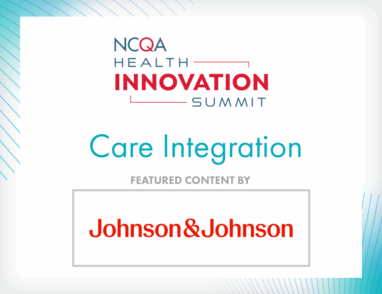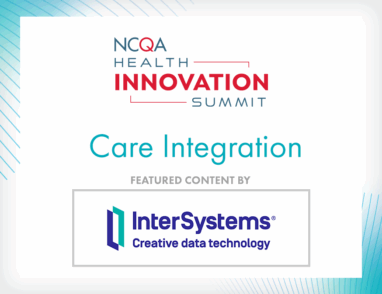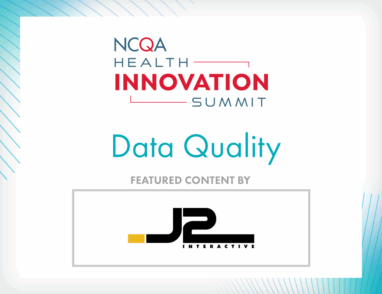Health Innovation Summit Kicks Off in Nashville: Day 1 Highlights
October 31, 2024 · NCQA Communications
NCQA’s Health Innovation Summit is underway in Nashville, Tennessee! Check out our video with highlights from the Summit.
To kick off the event, Dr. Victor Wu, Chief Medical Officer of TennCare, welcomed NCQA and our guests to his home city and introduced the four key themes of the conference: digital quality, health equity, value-based care and behavioral health. He then spoke about the progress Tennessee is making in each area, and the state’s long-standing partnership with NCQA.
Insights from Peggy O’Kane’s Opening Remarks
NCQA Founder and President Peggy O’Kane shared her perspective on the current state of quality in the U.S. health care system, why poverty is everyone’s problem and why we need to move toward digitally enabled care. Here are five key takeaways from her presentation.
- The U.S. is the outlier when it comes to health care system performance compared to spending. We just don’t get our money’s worth. When we spend so much on health care, it doesn’t leave a lot of money to spend on other things that can close health and wealth gaps.
- Poverty is a major driver of poor health and poor outcomes. It’s hard for vulnerable people living in poverty to get good care. NCQA is trying to address this through our health equity programs, but the problem is bigger than health care can handle. As citizens, we all have a responsibility to advocate for people who can’t get what they need.
- Data on racial disparities shows that there can be no quality without equity. That’s why NCQA builds health equity into everything we do. We are proud that 16 states require NCQA Health Equity Accreditation for their Medicaid managed care plans—but there’s much more work to do.
- The U.S. is strong internationally in care delivery—the things NCQA measures. But we’ve also seen measurement mushroom into a duplicative, burdensome nightmare for practitioners. CMS is doing its part to get alignment with the Universal Foundation measures, and NCQA is taking a big leap into digital measurement—it’s the only way to reduce measurement burden and get answers to important questions we can’t yet answer.
- Digital measurement is a means to end—an intermediate step on the way to our goal. NCQA continues to support the industry’s transition to digital measurement. But when you hear about digital measurement, remember why we want it. Our ultimate goal is digitally enabled care that gives practitioners useful data at the point of care so they can deliver the right care, at the right time, every time. Measurement will flow directly from care and not add quality reporting as a separate, burdensome step.
Digitally enabled care is the dream that pulls us toward a new way of working. To get there, we need new tools that haven’t been available until now—and that includes AI.
How AI Can Impact Health Care Quality for the Better
Following her opening remarks, O’Kane engaged in a lively dialogue with Dr. Robert Pearl about the use of AI in health care. Pearl is the author of ChatGPT, MD: How AI-Empowered Patients & Doctors Can Take Back Control of American Medicine, which debuted as a top new release and a bestseller on Amazon.
According to Dr. Pearl, AI can revolutionize health care quality by reducing clinician burden, harnessing health data to improve outcomes and driving new payment models. We just need to see beyond what we have now, and imagine what AI could become in the future. Here’s what we learned:
- Generative AI is doubling in power every year.
- The average hospital gathers a petabyte of data—the equivalent of 1 million gigabytes or 1,000 terabytes—but doesn’t use 97% of that data.
- We have too much data, and no one knows what to do with it. AI can help clinicians sift through the data—from wearables to clinical encounters—to get to the heart of what’s important for each patient.
- Using AI to listen to the clinical encounter and document it in the EHR can save clinicians up to 2 hours a day.
- AI can empower patients by helping them manage their lifestyle, track medications, monitor chronic diseases and detect acute issues early.
Pearl also discussed his idea of community hubs to leverage AI in underserved areas where access to technology is limited. These hubs would be strategically located in accessible facilities, such as community centers, and be staffed by community health workers and a care team. When properly trained, generative AI would be central to hub operations—from assisting with recommendations for proper diet and exercise to identifying social or environmental factors that impact a person’s health.
Although we have a long way to go, AI is improving every day—and Pearl encourages us to keep an open mind about AI’s potential to positively impact the health care industry.
We’ll be posting more highlights from the Summit on the NCQA blog tomorrow!







